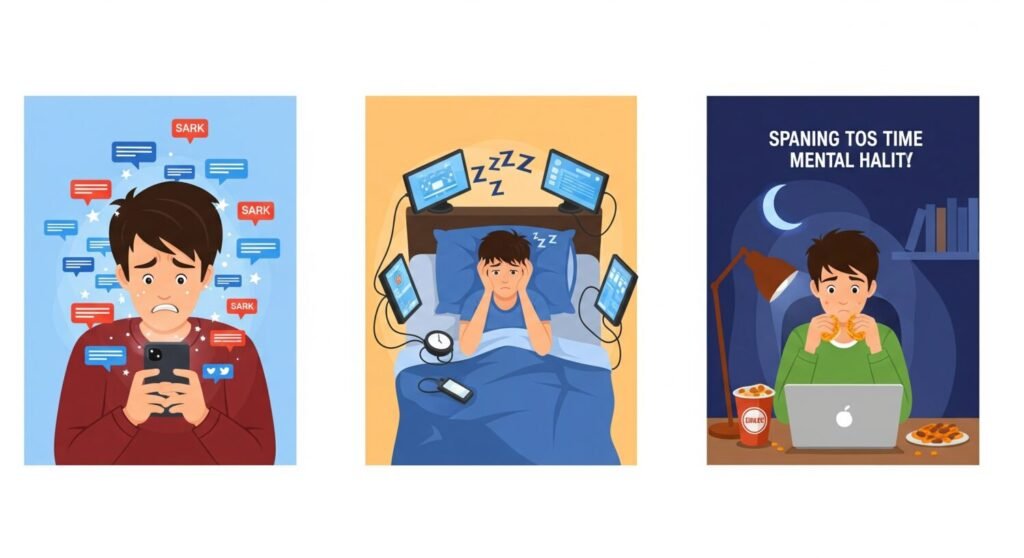Are your daily routines secretly impacting your mental well-being? Discover common habits that might be harming your mental health and learn how to make positive changes.
We all have our routines, the little things we do day in and day out without much thought. But could some of these ingrained habits be悄悄地 affecting our mental health? It’s easy to overlook the subtle ways our daily lives can impact our mood, stress levels, and overall well-being. Let’s take a look at some common daily habits that might be doing more harm than good to your mental state.
The Scroll Trap
Spending excessive time scrolling through social media has become a ubiquitous habit for many. While it can seem like a harmless way to unwind, constant exposure to curated highlight reels and endless news feeds can trigger feelings of comparison, inadequacy, and anxiety. The fear of missing out (FOMO) is real, and the constant stimulation can leave your mind feeling overwhelmed and restless.
Skipping Sleep’s Crucial Role
In our fast-paced world, sleep often gets relegated to the bottom of the priority list. However, consistently skimping on sleep can have significant consequences for your mental health. Lack of sleep can lead to increased irritability, difficulty concentrating, impaired decision-making, and a higher risk of developing mood disorders. Aiming for those recommended 7-9 hours of quality sleep is an investment in your mental well-being.
Isolating Yourself
While everyone needs some alone time, consistently isolating yourself from social interaction can be detrimental to your mental health. Human connection is a fundamental need, and strong relationships provide support, a sense of belonging, and reduce feelings of loneliness. Make an effort to connect with friends, family, or your community regularly, even if it’s just a quick phone call or a brief chat.
Neglecting Physical Activity
It’s no secret that exercise is good for your physical health, but its benefits extend significantly to your mental well-being. Physical activity releases endorphins, which have mood-boosting effects, reduces stress hormones, and improves sleep quality. You don’t need to run a marathon; even a short walk or some light stretching can make a difference.
Relying on Unhealthy Coping Mechanisms
When stress hits, it’s easy to turn to unhealthy coping mechanisms like excessive screen time, overeating junk food, or substance use. While these might provide temporary relief, they ultimately exacerbate underlying issues and can create new problems. Learning healthier ways to manage stress, such as mindfulness exercises, spending time in nature, or pursuing hobbies, can have long-term positive effects on your mental health.
Bottling Up Emotions
In a culture that sometimes values stoicism, it can be tempting to suppress or ignore difficult emotions. However, consistently bottling up your feelings can lead to increased stress, anxiety, and even physical symptoms. Finding healthy ways to express your emotions, whether through talking to a trusted friend, journaling, or engaging in creative outlets, is crucial for emotional well-being.
By becoming more aware of these daily habits, you can start to make conscious choices that support your mental health rather than hinder it. Small changes can lead to significant improvements in your overall well-being.










